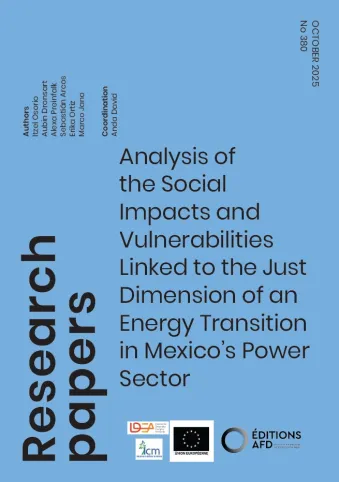Share the page
Analysis of the Social Impacts and Vulnerabilities Linked to the Just Dimension of an Energy Transition in Mexico’s Power Sector
Published on

Mexico’s just energy transition (JET) requires addressing both decarbonization and deep social inequalities. This study analyzes four high-impact measures: the retirement of fossil-fuel plants, the expansion of large-scale solar and wind, and residential distributed generation. From 80 proposed strategies, four were selected using multicriteria analysis. Methods included a literature review, construction of a state-level vulnerability index (exposure, sensitivity, adaptive capacity), and 18 expert interviews across government, academia, civil society, and international institutions. Results show heterogeneous vulnerabilities: Guerrero is highly exposed to fossil plant retirement; Puebla’s high indigenous population heightens risks from solar expansion; Tamaulipas, Coahuila, and Nuevo León face medium vulnerability in wind; while Sonora and Sinaloa are especially sensitive to residential distributed generation. Policy recommendations emphasize labor reconversion and unemployment insurance, fair land-use compensation and community energy cooperatives, environmental safeguards for panel and battery disposal, and gender-sensitive health and training programs. Together, these measures anchor governance, equity, and sustainability in Mexico’s energy transition.
Useful Information
-
Authors
-
Itzel Osorio, Aubin Dronsart, Alexa Preinfalk, Sebastián Arcos, Erika Ortiz, Marco Jano
-
Coordinators
-
Edition
-
380
-
Number of pages
-
52
-
ISSN
-
2492 - 2846
-
Collection
-
Research Papers
-
Languages
-
English
